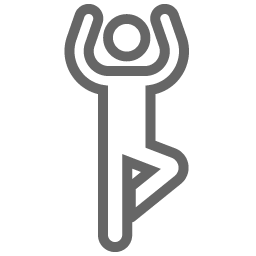Menopausal symptom management – Complementary or alternative therapies
Advise patients that there is negative or insufficient evidence of the effectiveness of other complementary or alternative therapies for the management of hot flushes, night sweats or vaginal dryness.
There are negative, insufficient, or inconclusive data suggesting the following should not be recommended as proven therapies for managing VMS: cooling techniques, avoidance of triggers, exercise, yoga, paced respiration, relaxation, over-the-counter supplements and herbal therapies, acupuncture, calibration of neural oscillations, and chiropractic interventions
Although there are many health benefits associated with these, attempts to use these therapies are likely to delay receipt of more appropriate and effective therapies. In symptomatic women, such delays should be avoided given the association of VMS with other symptoms and overall quality of life. Exercise, yoga, and paced respiration should not be recommended for relief of VMS
How this guidance was developed
No evidence-based source recommendation was identified for this topic, which was considered an important aspect of care. This practice point was developed using an expert consensus process. The 2015 Position Statement of the North American Menopause Society is acknowledged.
Menopausal symptom management – Complementary or alternative therapies
Advise patients that there is negative or insufficient evidence of the effectiveness of other complementary or alternative therapies for the management of hot flushes, night sweats or vaginal dryness.
No evidence-based source recommendation was identified for this topic, which was considered an important aspect of care. This practice point was developed using an expert consensus process. The 2015 Position Statement of the North American Menopause Society is acknowledged.

